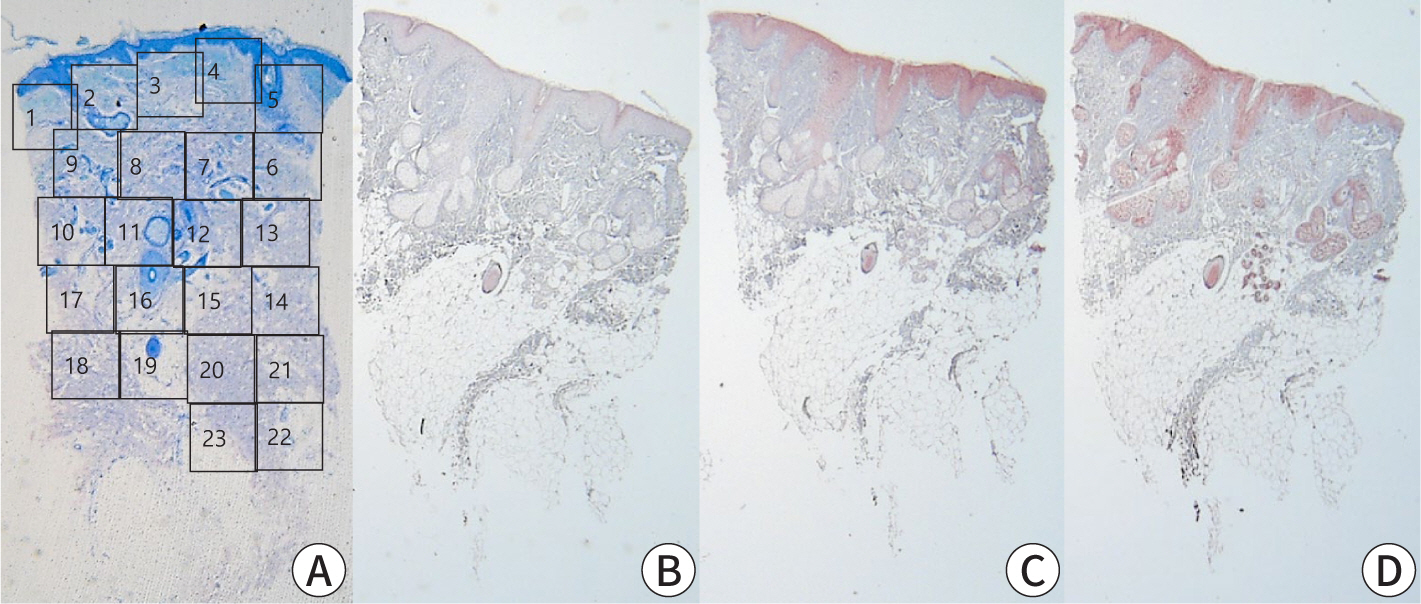
 , Sung Sook Kim
, Sung Sook Kim
The host immune system normally functions to destroy neoplastic cells that continually develop as a result of somatic mutations. However, patients with head and neck squamous cell carcinoma have depressed cell-mediated immune function, which has recently been shown to be most pronounced in the local and regional environment of the primary tumor. Recent studies suggest a local modulation of the host immune response to tumor by secreted immunoregulatory factors such as cytokines, especially pro-inflammatory cytokines(interleukin-1, interleukin-6, interleukin-8, interferons, and tumor necrosis factor).
To assessthe ability of head and neck squamous cell carcinoma to produce these cytokines, initially, we have performed immunohistochemical staing for interleukin-6 and tumor necrosis factor in 20 cases of laryngeal squamous cell carcinoma and 10 cases of laryngeal nodule as a control group.
We detected interleukin-6 in 11 cases of laryngeal squamous cell carcinoma(55%) and tumor necrosis factor in 11 cases of laryngeal squamous cell carcinoma(55%). All of 10 papillomas showed no expression of interleukin-6 and tumor necrosis factor. There is no statistical correlation between interleukin-6 and tumor necrosis factor expression and clinical stage or pathologic grade.
These results suggest that laryngeal squamous cell carcinoma may secrete cytokines influencing the response of local immune cells. But future studies of the role of tumorderived cytokines in the local immune response to tumor could be investigated,since cytokines may directly or indirectly regulate tumor growth and metastasis.

